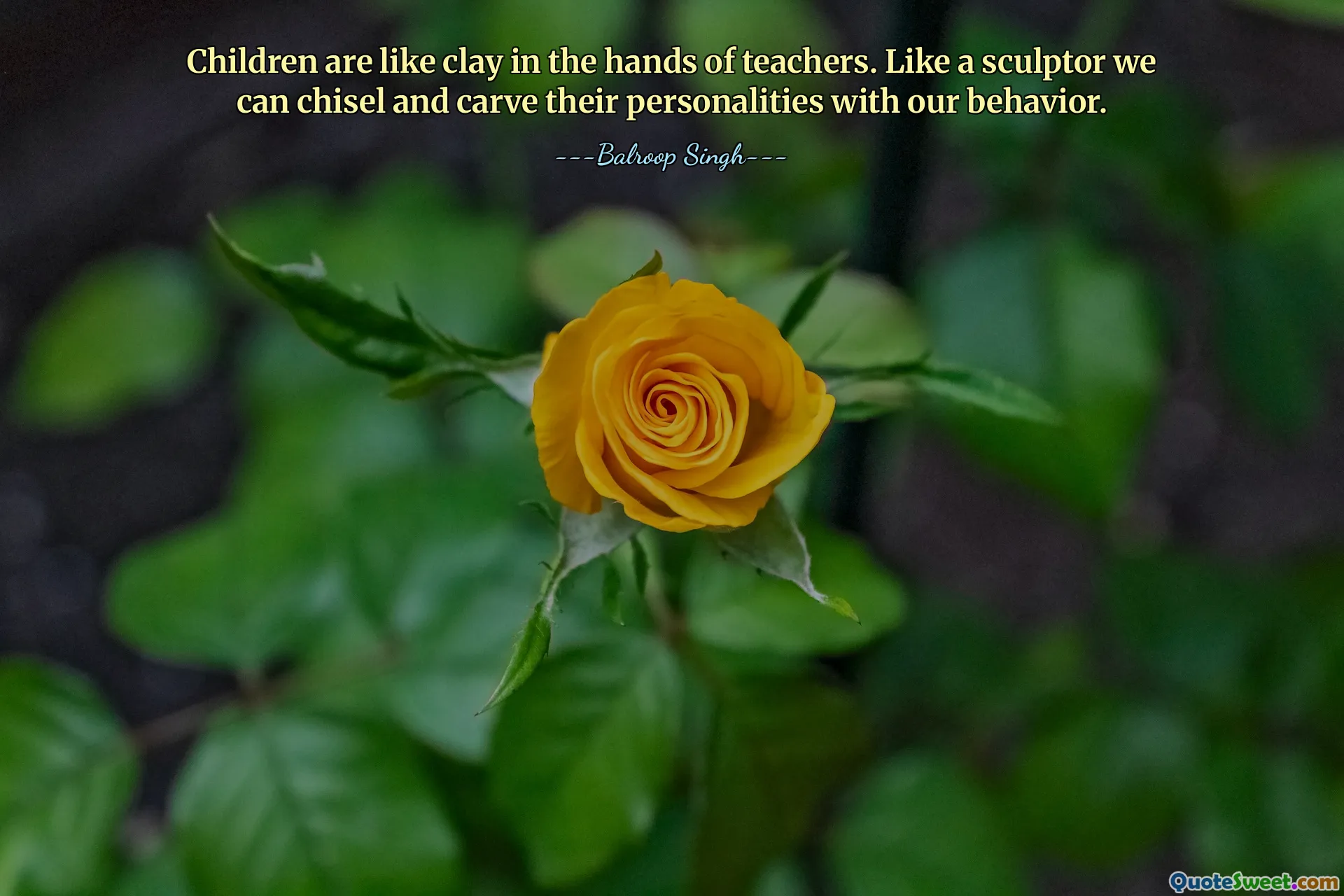
Children are like clay in the hands of teachers. Like a sculptor we can chisel and carve their personalities with our behavior.
The metaphor of children being like clay in the hands of teachers eloquently highlights the profound impact that educators and caregivers have on shaping a child's development. Just as a sculptor carefully molds and refines a sculpture, teachers influence the personalities, values, and behaviors of children through their words, actions, and attitudes. This analogy underscores the responsibility entrusted to those who guide young minds — their actions can either foster growth and confidence or inadvertently cause damage. The process of guiding children requires patience, understanding, and a delicate touch, much like sculpting a masterpiece. Teachers serve not just as transmitters of knowledge but as role models who model empathy, integrity, and resilience. When consistent positive behaviors are demonstrated, children learn to mirror these qualities in their own lives. Conversely, neglect or negative influence can leave enduring scars, shaping personality in undesirable ways. The analogy reminds us that each child's potential is malleable and that with thoughtful, nurturing guidance, we can foster growth, character, and self-understanding. Moreover, it emphasizes that the formation of a child's personality isn't a one-time event but a continuous process, requiring ongoing reflection, patience, and love. Recognizing children as malleable yet delicate allows educators to approach their role with greater responsibility and care, knowing that the lessons they impart can last a lifetime. Ultimately, this quote reminds us of the power inherent in our everyday actions and attitudes — shaping not just individual children but the future of society itself.











